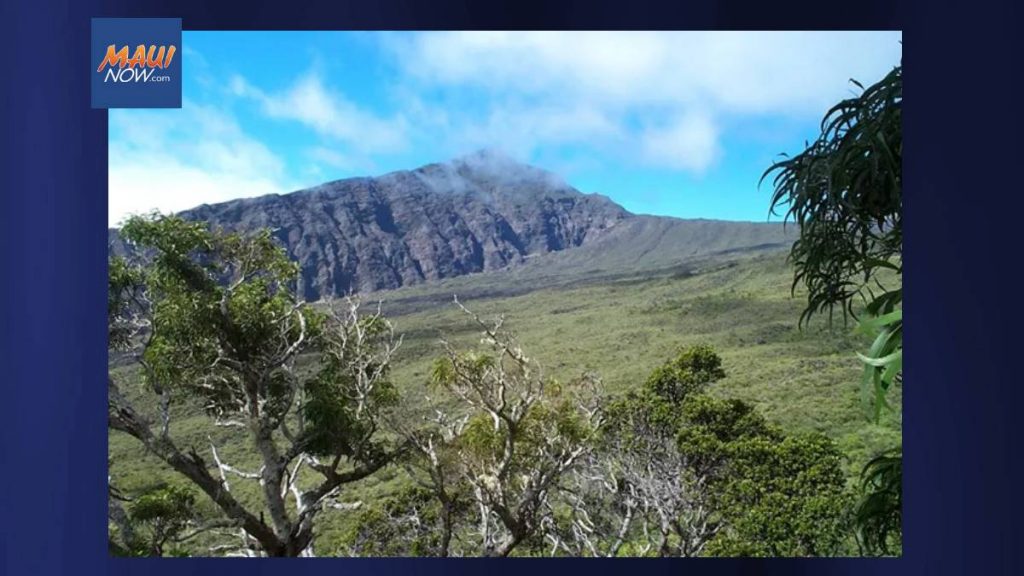What’s for Hawaiʻi in $1.5 trillion spending bill passed by US House?

The US House of Representatives on Wednesday passed a $1.5 trillion measure to fund the federal government for the current FY2022. If approved by the US Senate as expected, the bill will go to President Joe Biden for his expected signature into law.
“This bipartisan agreement addresses the major challenges our country faces at home and abroad,” said US Rep. Ed Case of Hawaiʻi.
Rep. Case, a member of the U.S. House Committee on Appropriations responsible for all federal discretionary spending, said the bill supports Ukraine in its struggle against Russia, the continuing recovery from the COVID-19 pandemic and “helping our country and our communities and families with pressing needs in defense, health care, education, social services, natural resources and more.”
For Maui, the bill includes $6 million to Haleakalā National Park to expand public access to recreational activities and the Kaupō Gap Trail.
In a press release, Rep. Case said the funding bill provides key provisions for Hawaiʻi that he pursued in the Appropriations Committee. They include:
- additional funding to address the Red Hill fuel leak on Oʻahu
- increased funding for federal Native Hawaiian programs
- provisions to protect Hawaiʻi’s natural resources and stabilize its economy
- additional funding to fully implement the $1.2 trillion bipartisan infrastructure law in Hawai’i
“On Red Hill in particular, and on the heels of the recent announcement by the Secretary of Defense to defuel and permanently close the facility, my Appropriations Committee included some $736 million in new funding I requested to continue supporting displaced servicemembers, civilians and their families, addressing drinking water contamination and to conducting activities in compliance with the State of Hawaii’s emergency order,” Case said.
Hawaiʻi highlights of the FY 2022 bill:
- $38 million for the Native Hawaiian Education Program, a $1.5 million increase from the FY 2021 enacted level and the President’s budget request.
- $6 million to maintain and repair Atmospheric Baseline Observatories, including the Mauna Loa Observatory where the famous Keeling Curve proving rapid climate change was developed.
- $34 million for the Agricultural Quarantine Inspections program to combat invasive species in Hawai‘i.
- $19.7 million for the East-West Center, an education and research organization established in 1960 to strengthen relations between the people and nations of Asia, the Pacific and the United States. This provision provides stable year-to-year funding after a decade of efforts to reduce or even eliminate such funding.
- $1 billion for the Small Business Administration, a $109 million increase above FY 2021 funding.
- A requirement that the Consumer Product Safety Commission investigate the importation and shipment of illegal aerial fireworks and develop recommendations for stopping it.
- $17 million for the National Trails System, which will benefit the Ala Kahakai National Historic Trail on the Big Island.
- $235 million of military construction projects throughout the state, which will benefit not just the national defense but local businesses.
- $2.2 billion for homeless assistance programs for our nation’s veterans, an increase of $246 million above the 2021 enacted level.
- Support for various elements of the Pacific Deterrence Initiative, which bolsters deterrence and maintains our competitive edge in the Indo-Pacific in recognition of threats posed by China and the need to preserve a free and open Indo-Pacific.
Ten organizations in Hawaiʻi will share $8.2 million in Community Project Funding to address key, unmet community needs. Rep. Case requested the specific projects, with more information about them available here.
They are:
- $500,000 for the Institute for Native Pacific Education and Culture Small Business Incubator Project at Leeward Community College
- $300,000 for the City and County of Honolulu to develop its city-wide Tree Inventory and Management Plan.
- $1 million for the planning and design of the Hawai‘i Emergency Management Agency’s State Emergency Operations Center in the Mililani First Responder Tech Campus.
- $415,000 for the Waikīkī Marine Life Conservation District Site Restoration project
- $200,000 for the Moku o Lo‘e (Coconut Island) Marine Laboratory Refuge Eco-Friendly Sea Wall Research project.
- $2 million for facilities and equipment at the Blood Bank of Hawai‘i
- $1 million for rural health research initiatives at the University of Hawaiʻi.
- $975,000 for digital skills literacy training at the State of Hawai‘i Workforce Development Council
- $1.05 million for facilities and equipment at Kōkua Kalihi Valley Comprehensive Family Services
- $800,000 for a Honolulu Harbor Modification Feasibility Study by the US Army Corps of Engineers to assess the current vulnerabilities of the harbor to natural disaster, navigation mishap and sea level rise, and propose opportunities, alternatives or solutions to identified vulnerabilities.
The national bill includes the Ukraine Supplemental Appropriations Act, which provides $13.6 billion in emergency funding to support the Ukrainian people and defend global democracy in the wake of Russia’s unprovoked attack on the sovereign nation.
- $4 billion to the US Agency for International Development to provide food, healthcare and other dire humanitarian needs to the millions of refugees who fled the country or been displaced within Ukraine
- $1.8 billion to flexibly respond to macroeconomic needs in Ukraine and its neighbors, including energy and cybersecurity efforts
- $3.6 billion in defense support for Ukraine and North Atlantic Treaty Organization (NATO) partners to deter Russian aggression
- Increases the President’s authorization to transfer defense equipment to Ukraine and other allies to $3 billion
- Enforces the tough sanctions that have been imposed on Russia with funding for the Departments of Commerce, Justice and the Treasury to further develop and enforce sanctions and prepare for and respond to cyber threats.
To read Rep. Case’s full release on the bill, click here. To view the 2,741-page bill, click here.










